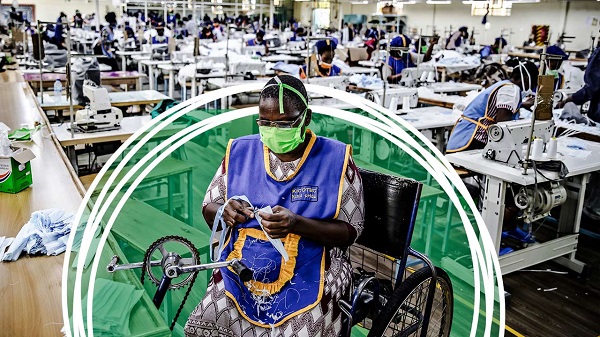‘Trade disruptions by pandemic impacting women negatively’
 Women are likely to be harder hit than men by trade disruptions caused by the COVID-19 pandemic and the dangers are particularly acute in developing countries according to a new information note from the World Trade organisation (WTO).
Women are likely to be harder hit than men by trade disruptions caused by the COVID-19 pandemic and the dangers are particularly acute in developing countries according to a new information note from the World Trade organisation (WTO).
Indeed, the paper points to how governments’ policy responses could address gender-specific effects of the crisis, considering that women make up a larger share of the workforce in the manufacturing sectors, such as textiles, apparel, footwear and telecommunication products, that have seen the largest falls in export growth during the first months of the pandemic.
In the services sector, women also outnumber men in industries that have been directly affected by travel restrictions, such as tourism and business travel services.
The paper estimates the risk posed by trade disruptions on men and women using employment data from the World Bank Enterprise Surveys, monthly merchandise exports data and statistics on the mode by which a service is supplied.
The paper furthermore notes that women are disproportionately present in the informal sector in developing and least-developed countries and in activities that cannot be done remotely.
It also highlights how the existing gender gap in terms of income, education, information technology skills, access to finance, and childcare responsibilities put women at a further disadvantage during the pandemic.
Maintaining open markets during the recovery period is key to building faster and more inclusive growth, the information note states, adding that this should be complemented by appropriate labour and education policies as well as legal and social reforms to support women workers, consumers and traders.
The paper also points to the recently launched WTO-World Bank report “Women and Trade: The role of trade in promoting gender equality,” which highlights ways to ensure women continue to benefit from trade during the economic recovery after the pandemic.
In Nigeria, stakeholders in the financial inclusion sector have urged small businesses, especially women-owned businesses to deploy technology to hedge further disruptions to their businesses.
Noting that the lockdown measures deployed to address the impact of the COVID-19 pandemic further impoverished most people doing business in the informal sector and widened the poverty gap, the stakeholders advocated inclusion strategies that will empower and strengthen the informal sector.
Speaking at an online media parley on how COVID-19 has impacted the informal business earlier in the year, the Executive Director of Micro-Enterprises, Bank of Industry, Toyin Adeniji, noted that for the about 41 million MSMEs in Nigeria, many of who operate with a small capital base, remain a significant contributor to the nation’s economy. The pandemic has proven to be a tough time, given the fragility of businesses within the informal sector and the dependence on daily incomes, which have been cut down by restrictions in movement.
“The ecosystem is quite complex and the pandemic has shown the fragility in the system and disruptions in the system. People who had to be at their business places could not go because of restrictions to movements. There has been a shortage of revenue, inability to get funding, while capital was grossly eroded in the course of the pandemic.
Thelma Ekiyor and Nkem Okocha, who run private sector initiatives – SME.NG and Mamamoni, both of which support women with funding and vocational skills, said the pandemic has necessitated a slight change in how they provide support to their target audience who are mostly women building small businesses.
To the Managing Partner, SME.NG, Ms Thelma Ekiyor, 2020 was supposed to be the decade of women but the pandemic may erode 10 years of progress if stakeholders are not careful.
“Our team conducted surveys at the beginning of the pandemic which caused them to switch their approach to include stimulus packages that can keep these women’s businesses in survival mode at the very least. We need to invest in the sector in the long term. We structured our businesses to make it relief-oriented in order to remove barriers to access to help.
“We knew it was important to have a triage to address the situation. Though they are called the informal sector, they are indeed the employment sector. The available stimulus packages had too much bureaucracy and excluded a lot of such businesses.
On her part, Founder and CEO, Mamamoni, Nkem Okocha, said: “Most of the women that we work with have been negatively impacted by the pandemic. They are no longer requesting for loans but help in terms of stimulus. A lot of women do not default but after the first week of the lockdown, some of such people with a good track record of loan repayments could not feed their households.
“We are initiating a new platform and stopping lending for the next one year and looking at ways to help our partners restart their businesses. Teaching them to launch sustainable business is key, as many of these women do not have a sustainable business and low loans.
“We need to teach them how to take their businesses online so that they can connect their businesses to people who have demands for their products. Using technology to scale their businesses is key. We piloted the scheme with two women and gave them grants to see how they can leverage technology to do their businesses.”











